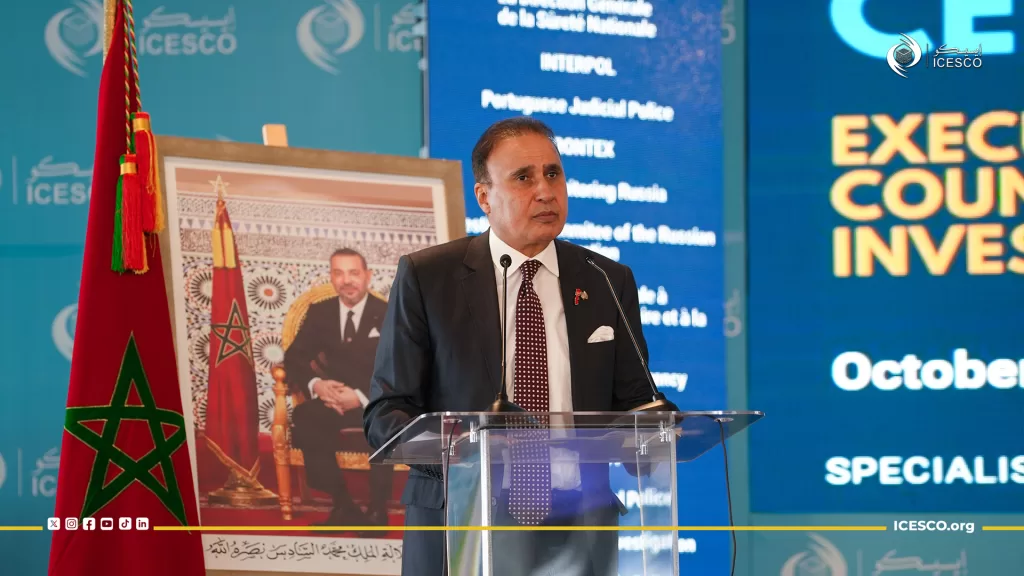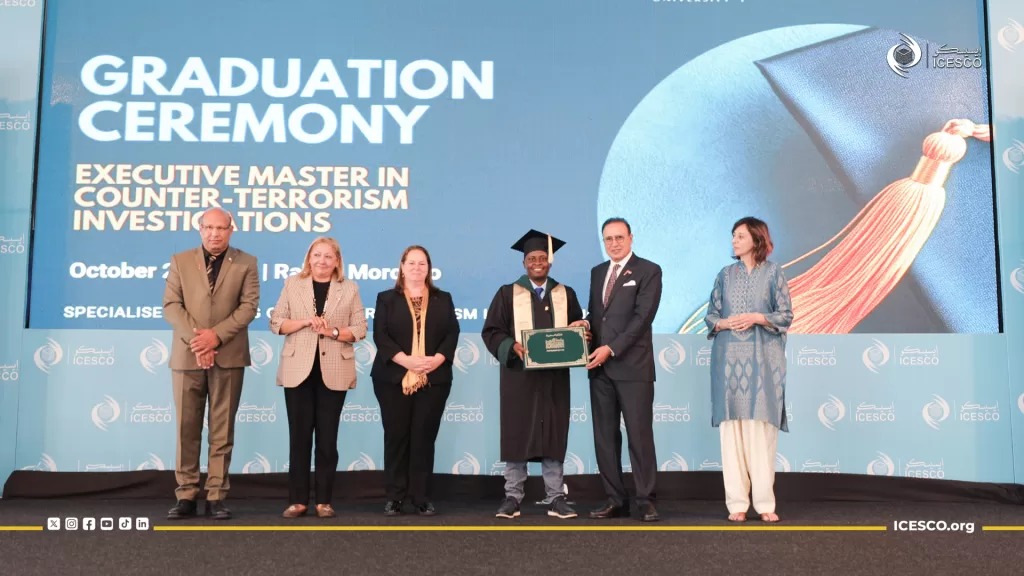
ICESCO Hosts Graduation Ceremony for Students of the Executive Master’s Program in Counter-Terrorism Investigations

25 October 2025
The headquarters of the Islamic World Educational, Scientific and Cultural Organization (ICESCO) hosted, on Friday, 24 October 2025, the graduation ceremony for the cohort of 2025 of the Executive Master in Counter-Terrorism Investigations Program (EMCTI).
The program is supervised by the United Nations Office of Counter-Terrorism (UNOCT) in Morocco, in partnership with Al Akhawayn University (Morocco), with the objective of building a network of counter-terrorism specialists across Africa.
The ceremony was attended by several ambassadors, members of the diplomatic corps, academics, and presidents of Moroccan universities. A total of 22 students from Burkina Faso, Ethiopia, Kenya, Nigeria, and Somalia completed the requirements of this specialized program, which combines investigative methodologies in terrorism cases with international human rights standards.

In his opening address, delivered on behalf of ICESCO Director-General Dr. Salim M. AlMalik, Deputy Director-General Dr. Abdelilah Benarafa emphasized that preventing extremism and violence lies at the core of ICESCO’s mission. He noted that the Organization pursues an integrated approach based on promoting education, culture, science, and dialogue while addressing emerging threats stemming from the misuse of artificial intelligence, communication tools, and modern technologies to spread hatred, violence, and extremism.
The address also highlighted several key initiatives led by ICESCO in this field, notably the preparation of the Encyclopedia on Deconstructing Extremist Discourse in three volumes, developed in partnership with the Mohammadia League of Scholars in Morocco. Other initiatives include youth empowerment programs, dialogue platforms such as the Peace 360° initiative, as well as a series of conferences and capacity-building sessions across Member States, all aimed at strengthening social cohesion and safeguarding educational and cultural environments.

In his pre-recorded statement, Mr. Alexandre Zouev, Acting Under-Secretary-General of the United Nations Office of Counter-Terrorism, stressed that this specialization forms part of broader efforts to reinforce counter-terrorism capabilities in Africa. He emphasized that the support provided by Morocco, China, and Portugal reflects a tangible commitment to enabling graduates to acquire advanced expertise that combines criminal investigation with respect for human rights.
Meanwhile, Mr. Amine Aboussaid, Representative of the Moroccan Ministry of Foreign Affairs, underscored that the growing threat of terrorism in Africa necessitates investment in human capital and the strengthening of regional cooperation.

Ms. Isabelle Valois, Ambassador of Canada to Morocco, highlighted her country’s contribution by sending 14 experts to share their expertise with participants.
For his part, the Representative of the Embassy of China in Morocco Mr. Mingming Chi called on all graduates to stay abreast of developments in this field after graduation and to contribute to enhancing institutional performance in their respective countries.




